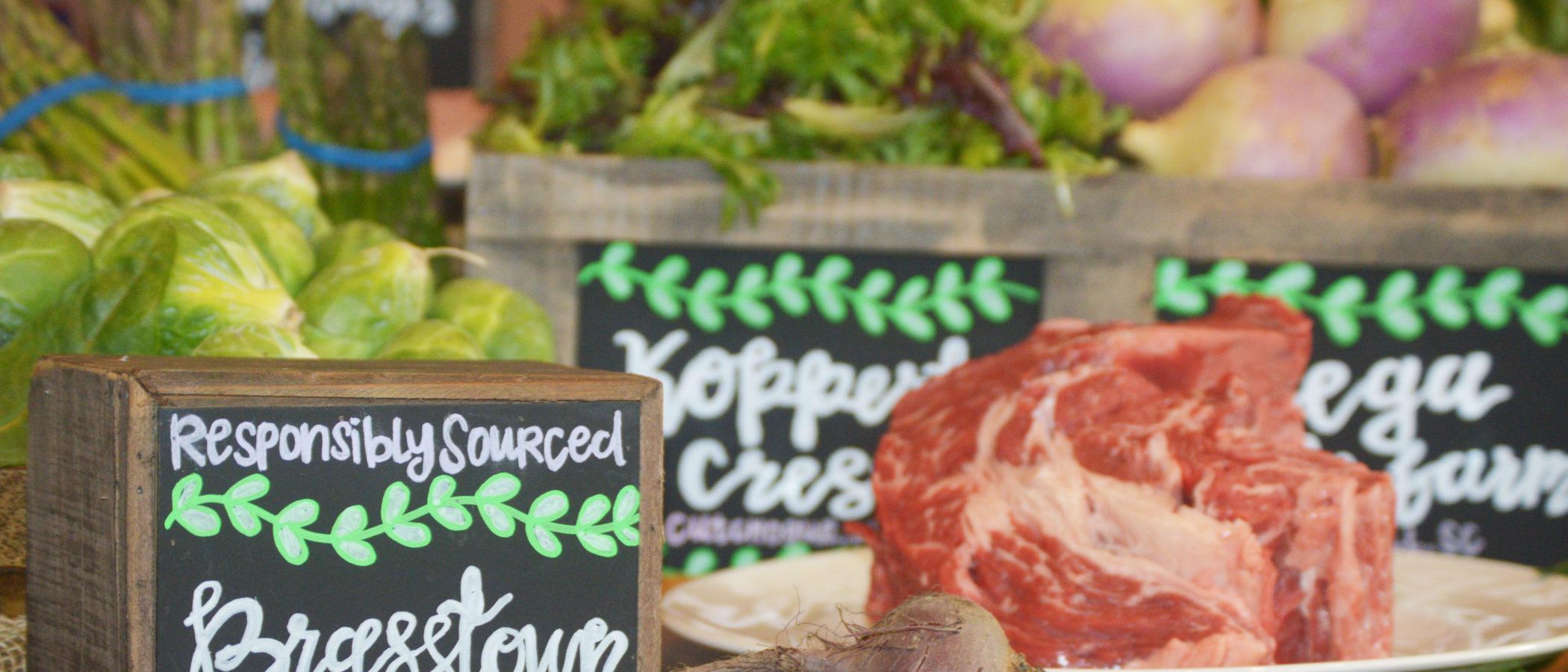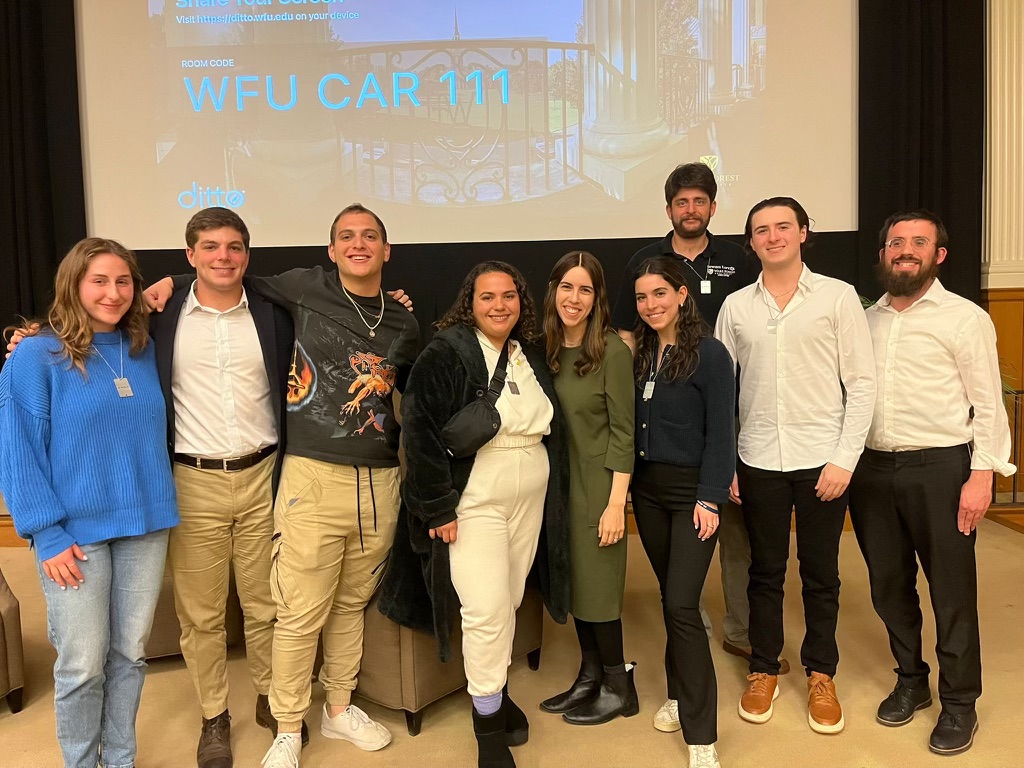Wake Forest recently earned a STARS gold rating for the first time, reflecting achievements in sustainability from the Association for the Advancement of Sustainability in Higher Education (AASHE). STARS, the Sustainability, Tracking & Rating System, covers nearly all facets of university operations and life. This includes dining, an area in which Wake Forest has recently made robust improvements.
Since the previous STARS report, Wake Forest Dining has increased the amount of food purchased from third-party verified (TPV) sources from three percent to more than 30 percent.
“We looked at the harm being created by the agriculture sector, and asked, ‘What are some interventions we could make here on campus to help create change?’,” said Dedee DeLongpre Johnston, Chief Sustainability Officer for Wake Forest.
Unsustainable agriculture practices damage land, waterways, water supply, human health and contribute to greenhouse gas emissions. The inhumane treatment of animals in production is also interconnected with environmental and human health concerns. Faced with these systemic issues, Wake Forest has chosen to set verifiable sustainability purchasing criteria for dining.
Additionally, both the Fresh Food Company (“The Pit”) and the North Dining Hall mitigate food waste during food preparation, donate unused food to Campus Kitchen, provide a myriad of opportunities for community engagement in sustainable initiatives, and are investing in the employees who are making it all happen.
From Three to Thirty Percent Third-Party Verified Sources
The team behind this change involves a collaboration between Harvest Table Culinary Group (a division of Aramark, the university’s contracted food provider), Hospitality & Auxiliary Services, and the Office of Sustainability.
It all began with a spending report. After years of fruitlessly trying to track every dining purchase and evaluating whether each item met sustainability criteria, DeLongpre Johnston proposed a new approach that started with a new question: on which food items is our campus spending the most money?
“It turns out that the dollar amounts aligned with the agricultural woes,” DeLongpre Johnston said. “Because all the big-spend items were animal proteins.”
Action in these high-purchase areas reduces negative environmental effects from inhumane animal production.
The dining team moved to find vendors that met sustainability criteria. This meant a shift away from a primary focus on locally-sourced goods and toward third-party verified suppliers.
TPV sources are those that have been verified by a group, independent from the producer or consumer, as sustainably and/or ethically produced and recognized by one or more food and beverage quality standards.
“We can make the largest impact in the areas where we consume in the highest quantities,” said John Wise, Vice President of Hospitality & Auxiliary Services.
The top four items on the spend report were poultry-related, so Harvest Table chefs set out to find a poultry producer that was TPV as humanely raised and handled. Eventually they settled on Murray’s Family Farm, a Certified Humane production which partners with farmers across the East Coast.
Next they moved to beef, developing a partnership with Brasstown Beef. This product is both TPV with a Global Animal Partnership Level 5. The producer also happens to be within the 250-mile radius usually used to define “local.”
Complementing these two major TPV supply chain shifts are TPV salmon, tuna and bananas.
Less Meat, Better Meat
The World Resources Institute recently published a piece highlighting how ruminant meats have the highest resource requirements of any food we eat. Beef production, for example, uses 20 times more land and emits 20 times more emissions than bean production, per gram of protein. On the other hand, well-managed cattle grazing can also play an important role in regenerative land management and the sequestration of carbon in the soil.
Where we purchase our food, especially animal products, is incredibly important.
“Sometimes we are inclined to make changes that are easy but have a relatively low impact, and that’s fine but you need a lot of those little things cumulatively,” DeLongpre Johnston said. “If you assess supply chain, you can find a couple of really big boulders to start pushing out of the way — you can see some pretty big change and impact.”
Coupled with a commitment to holistic education about the nutritional benefits of food to students’ performance and wellbeing, better meat is a win.
Plates composed of foods that nourish bodies and minds for energy, brain function, immune support and other functions, tend to be plates with a smaller portion of animal protein.
A Commitment to Culinary Excellence
Procurement practices are only one step in the sustainable dining journey.
Primary focus is placed upon culinary excellence. If diners dislike the food offered, the importance of all other sustainable efforts is diminished.
“I’ve found that these TPV products are holistically better than your run of the mill extremely processed chicken or beef, and so they’re easier to cook and make taste great,” said Jordan Rogers, Executive Chef for Harvest Table.
Constantly striving to provide the Wake Forest community with excellent food has also led to the creation of the vegan station and other plant-forward dining options. All of these efforts contribute to the university’s sustainability profile.
Looking Ahead
The dining team hopes to continue increasing the number of TPV sources for their purchases. To do this, they will move down the spend list searching for sustainable vendors.
“There’s a big opportunity in the pork market,” Rogers said. “We are actively searching for a provider to help us meet that mark.”













